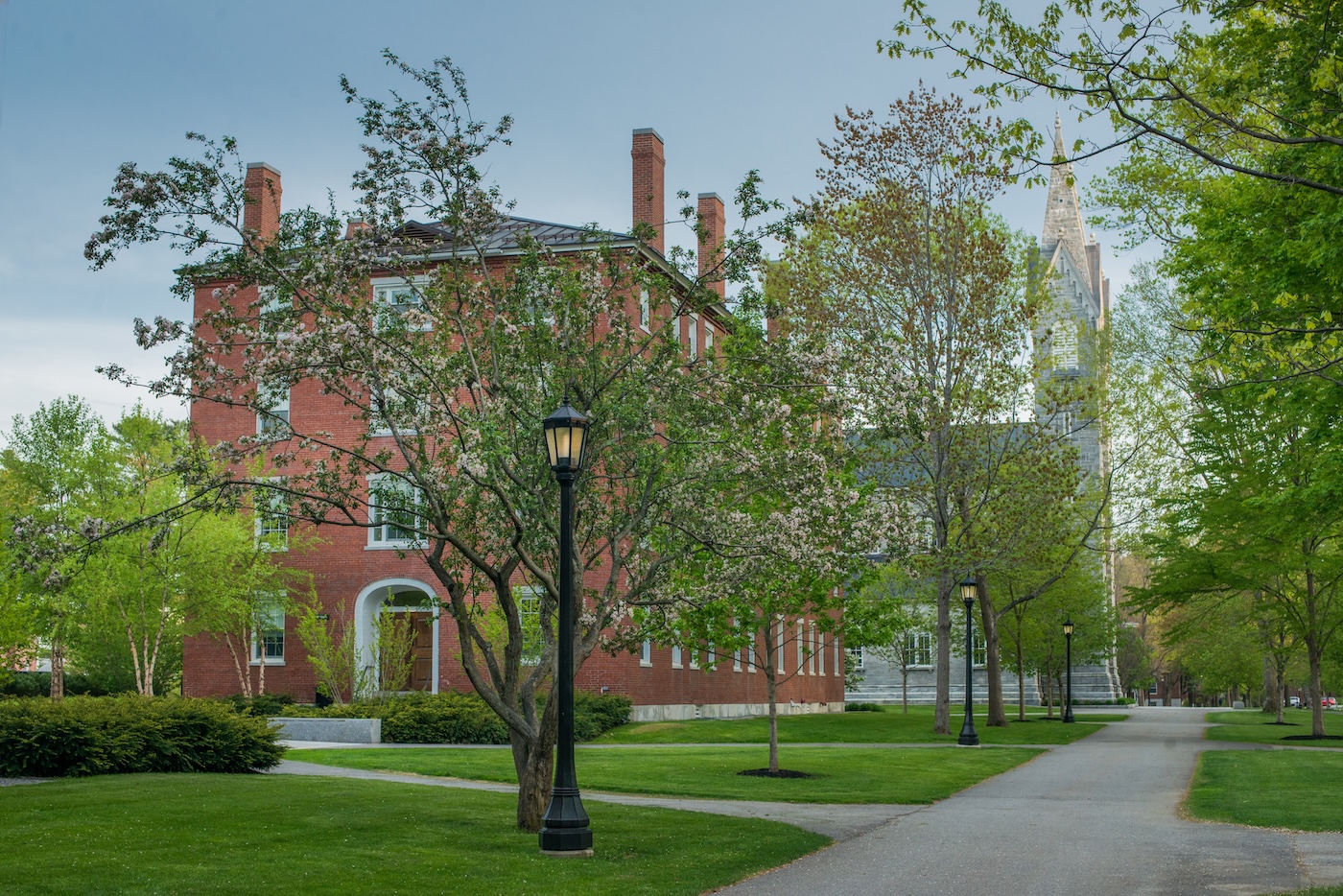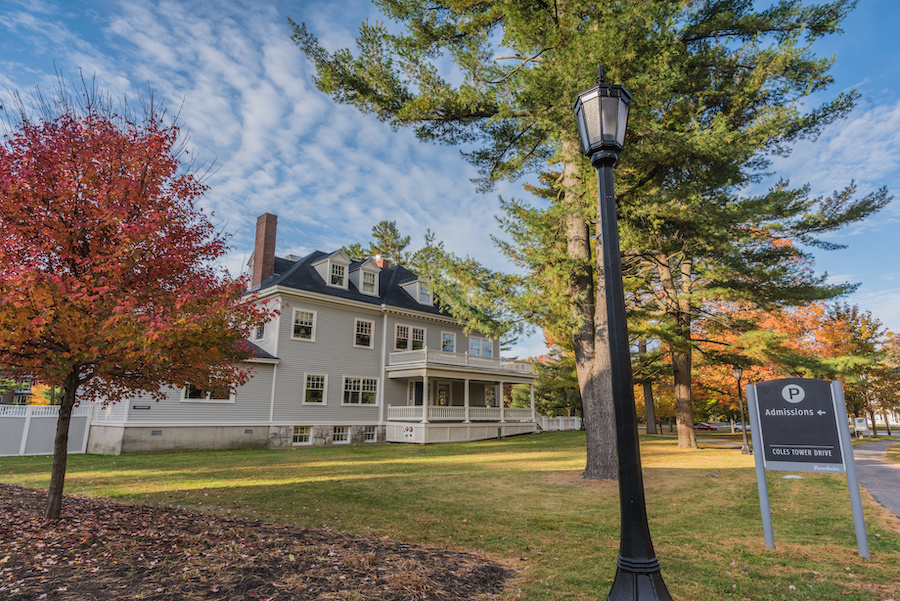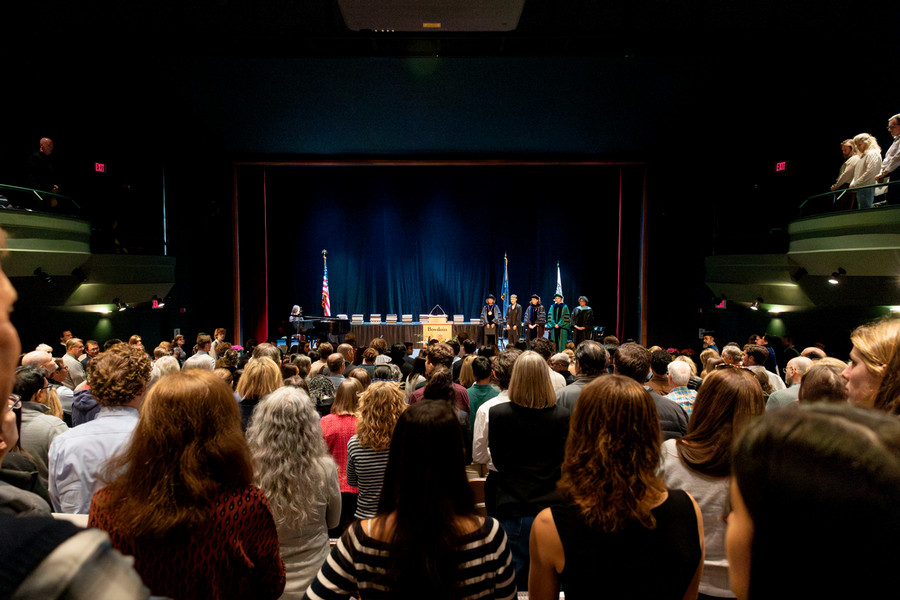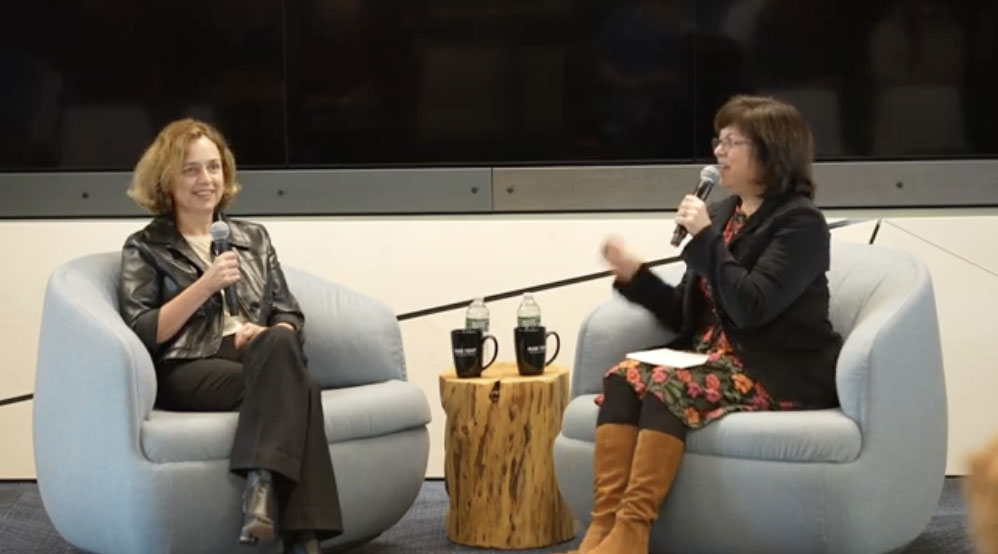President Rose Welcomes the Class of 2023
By Bowdoin News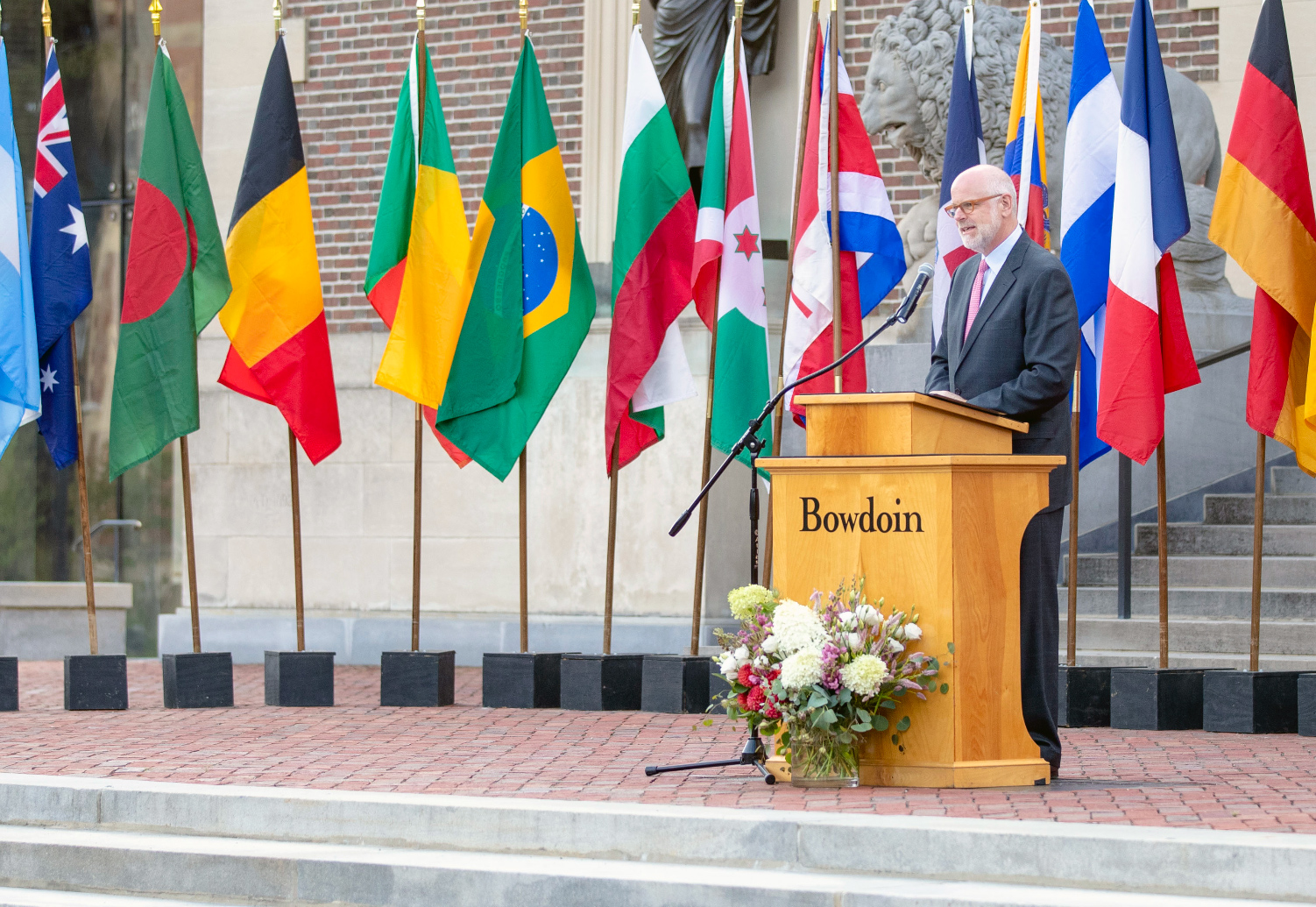
Good evening Class of 2023! And good evening to our transfer and exchange students.
I am delighted to have my chance to welcome you to Bowdoin as a class, and to share a few thoughts as you begin your time at the College.
In a few days, each of you will visit my office to sign the Matriculation Book on a desk that belonged to Nathaniel Hawthorne, Class of 1825. This will be a terrific chance for me to meet each of you.
And you’ll have a chance to see the signatures of other first-year students dating back to the early days of the College. Some of these names will be very familiar to you. This will be a tangible symbol of your permanent link to Bowdoin—a link to the more than 30,000 graduates over the past 214 years.
Among them are giants in literature and letters; military heroes; Arctic explorers; individuals who have broken racial and gender barriers; pioneering scientists and doctors; great political, government, and diplomatic figures; finance titans; Olympic champions; business and social entrepreneurs; leaders in technology; and great philanthropists. And there are many, many others who have made a real difference and lived lives of real meaning out of the spotlight.
Like you, they gathered together, as we are this evening, when they began their time at the College.
A word about our values: In great measure, you were accepted to Bowdoin because of your character. We expect you to use your sound judgment to do what’s right, to act with integrity every day in everything you do. As you know, we have the Bowdoin Academic Honor Code and Social Code. You need to read and understand both, and in the next few days you will be asked to acknowledge in writing that you have done so and that you will abide by them, which we expect and require you to do.
You will be held to a high standard at Bowdoin.
You have chosen to attend a liberal arts college—but you knew that. This is not a political statement. The word liberal stems from the Latin, liberalis. And the idea of this education dates from antiquity—the knowledge, skills, and wisdom that are necessary to participate in the life of the community.
I often talk about the three goals or purposes of a liberal arts education in today’s world: It is to prepare each of you to live lives of deep meaning by understanding the world we inhabit—the past, present, and future social, political, physical, economic, and cultural issues, among others—and to be prepared to learn throughout life. To engage thoughtfully and with effect in civic life. And to have the skills, knowledge, and ability to adapt for success and satisfaction in the work you will do.
For over two centuries we have been preparing our students in this way. And it is with this in mind that I have two thoughts for you this evening. I offer only two in the hope that you will remember them, think about them, talk about them over dinner with your classmates, and ponder them in the days, weeks, and years ahead. They should excite and energize you.
First, you are here to be challenged like never before, and, second, you are here to become intellectually fearless.
On being challenged—the better way of saying this is that you are here to challenge yourselves.
You will find the work will push you, at times push you very hard. And getting used to the level and pace of college work will take a little time for each of you. Don’t think you’re the only one—others may look like they are gliding along, but remember, just like ducks that appear to be gliding across the water, they are paddling like crazy under the surface. College is a challenge for everyone.
As you get your arms around how “to do” college and progress through your time here, I encourage you, strongly, to keep pushing yourselves out of your comfort zone—in the degree of sophistication of the material and in the subjects that may not be natural for you. In doing so, you will learn a lot, and discover a lot about yourself. In stretching and pushing yourself, you will find what you are really capable of accomplishing, and the satisfaction from this is amazing. This is not to say that you won’t fail or come up short of your expectations. You will, and you should.
We grow and learn, in good part, by failing, by figuring out where we went wrong, and then by moving ahead. This isn’t fun, but again, it can be deeply satisfying. And the most successful people I know in all walks of life have learned from the failure that inevitably comes from challenging themselves.
So, challenge yourself. It will give your four years here deep meaning and satisfaction.
Here is the other essential thing I have come to share with you this evening, and I have spoken about this idea on these steps each year.
At the core of a Bowdoin education, at the center of our mission, is the goal of helping you to become intellectually fearless.
There are many things you will do here. You will go to class. You will make deep and lifelong friendships. You will compete athletically, engage in artistic and cultural endeavors, explore the outdoors. Sometimes you’ll simply goof around—all good.
But, when it’s all stripped away, our essential goal is to help you develop intellectual fearlessness—the skills, knowledge, and the emotional fortitude to deeply and effectively engage with the most challenging issues and problems.
To do this, a great liberal arts education and liberal arts experience must make you uncomfortable. Now stop for a moment—"fearless and uncomfortable.” I am here to become intellectually fearless, and making this happen requires my being uncomfortable, at times rattled, and even offended.
Our education and our experience are about questions more than answers. They are about challenging deeply held views and pushing ourselves to comprehend new material—to engage with new ideas and with ideas where we disagree, and, in doing so, to consider material that shakes us up, that unsettles us, and yes, that may offend us.
A great liberal arts education is not an easy thing. But it is deeply rewarding, and it will set you on a path to ambitiously engage the world, to continue learning, to confront these hard problems, and to enjoy success. You will learn new ways of thinking about old problems. You will test and affirm many of the ideas you hold dear. And, on occasion, you will change your mind.
Don’t avoid being uncomfortable, embrace it.
Tomorrow, a week from now, a year from now, when you are in a discussion in class, listening to a speaker—in the dining hall, dorms, wherever—and you hear something that really pushes your buttons, that makes the hair on the back of your neck stand up, you should go to it, embrace it, figure out why you’re uncomfortable, unsettled, offended, and then engage with it. Engage with it in a thoughtful, objective, and respectful way. This is how you learn.
And, this has important instrumental value to you. This is how you develop the intellectual tools and emotional strength to face down and deal with our biggest problems and opportunities, those things most important to you. You have to be prepared—intellectually and emotionally—to engage the legitimate ideas with which you may disagree as well as to understand and overcome the myths and false rhetoric that have influence. You need to understand and contend with both legitimate data and insights, and the misinformation that has been weaponized. And you must be strong enough to engage with those of goodwill with whom you passionately disagree.
This is tough stuff. But this is how you change the world. And you will.
You have earned the opportunity to spend the next four years developing the knowledge, skills, and the emotional fortitude to be able to really engage the world and its big problems. To become intellectually fearless. How amazing is that?
And, as our seventh president, William de Witt Hyde, wrote in “The Offer of the College,” your time at Bowdoin will be among “the best four years of your life.”
I am thrilled you are here. Class of 2023, welcome to Bowdoin College!
